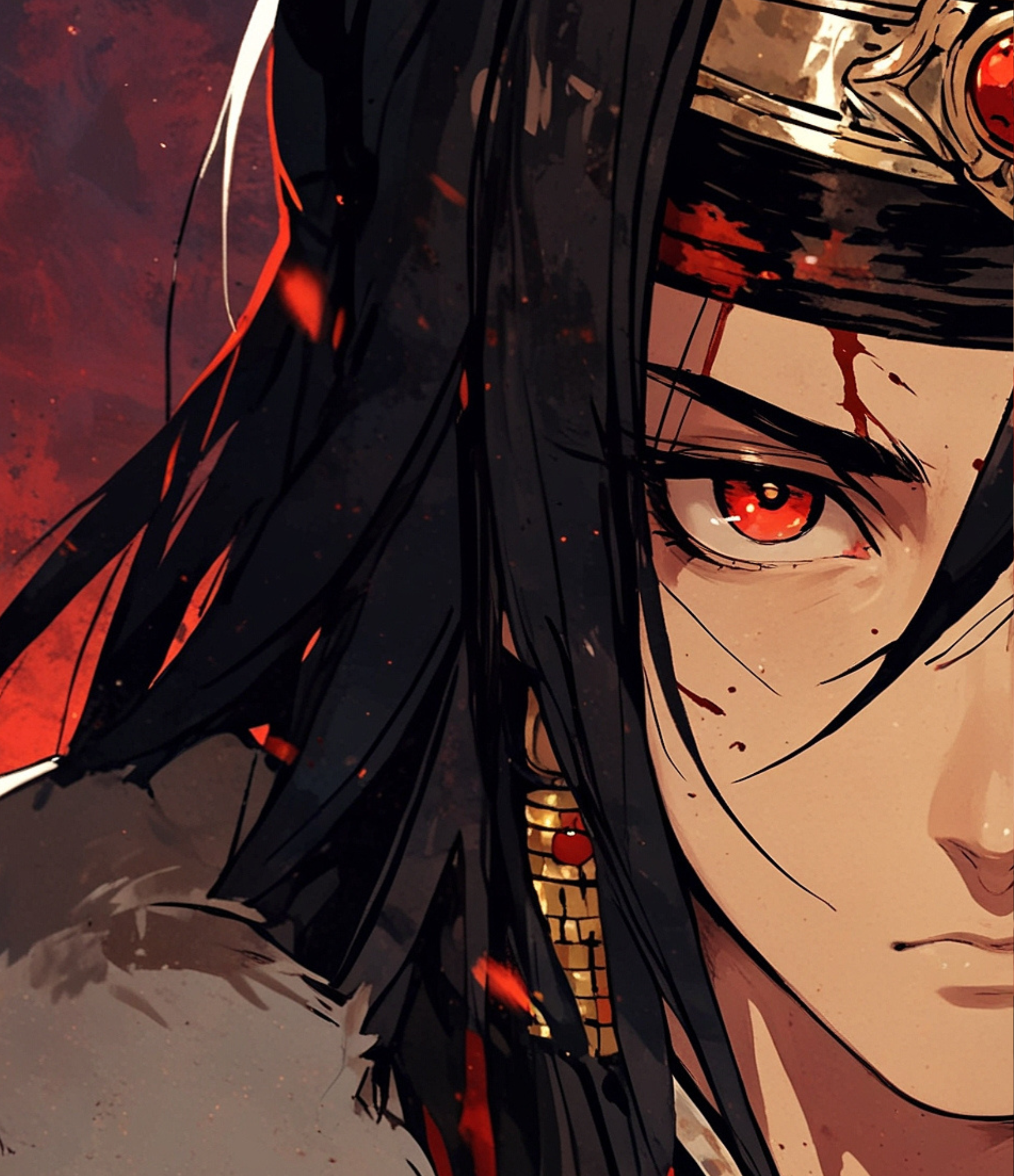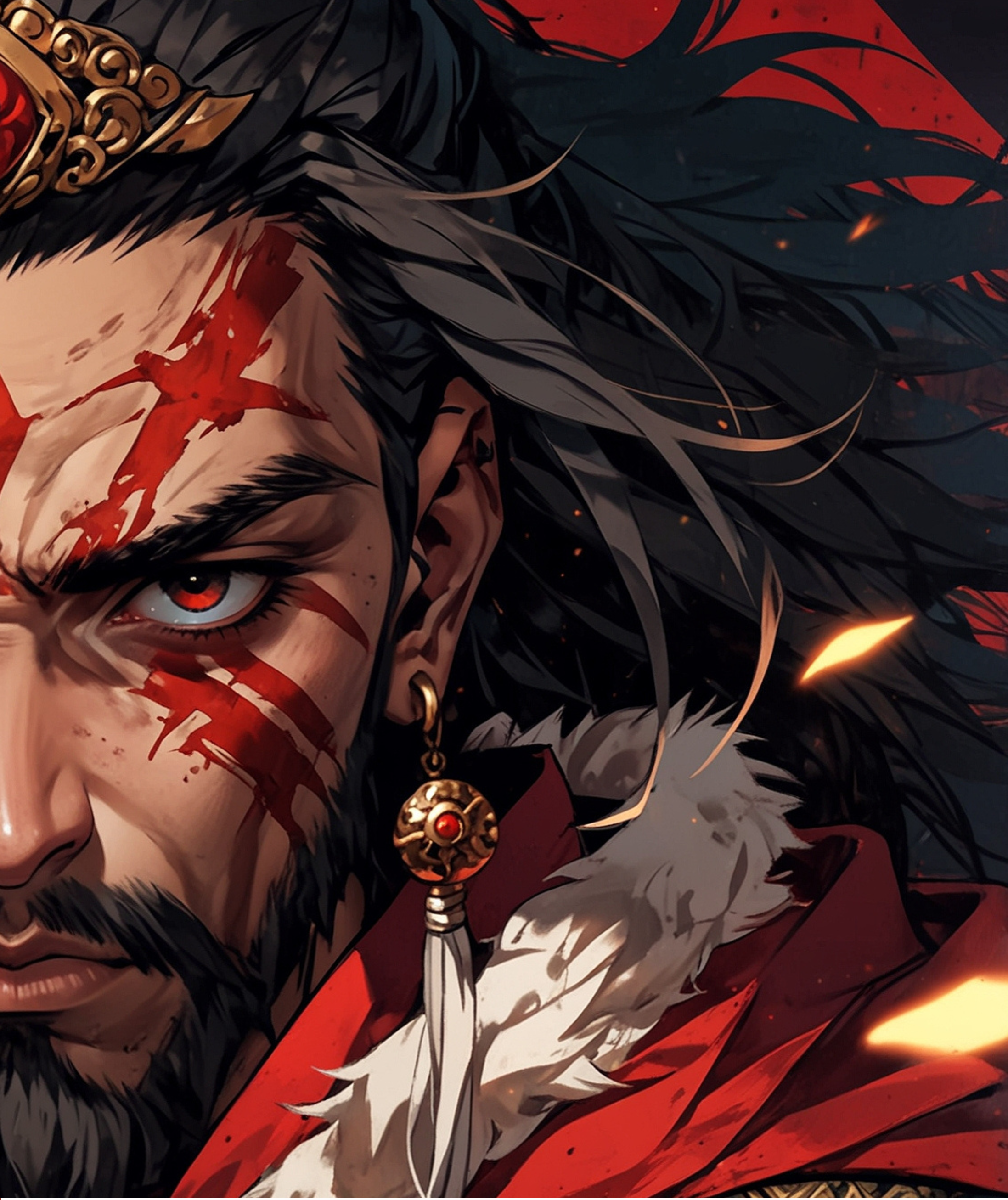

In the vast tapestries of storytelling, certain character archetypes resonate with a timeless, almost sacred power. They are the figures who walk the razor’s edge between honor and sin, loyalty and betrayal, love and duty. Few embody this paradox as tragically as Itachi Uchiha of the Naruto saga—a prodigy who slaughtered his own clan to save his village. It is a modern tragedy of almost Shakespearean proportions.
Yet, echoes of this impossible choice can be found in one of the oldest and most revered epics in human history: the Ramayana. In the golden kingdom of Lanka, another brother, Vibhishana, made a similarly agonizing decision to abandon his kin and side with their sworn enemy, Lord Rama.
Though separated by worlds—one of shinobi and chakra, the other of gods and asuras—Itachi and Vibhishana are spiritual brethren. They are both defined by the same soul-crushing question: What is the cost of righteousness? By examining their parallel journeys, we can explore the profound philosophy of Dharma, the unbearable nature of sacrifice, and the lonely path of a hero forced to become a traitor for the greater good.
This struggle to uphold a higher purpose, even at great personal cost, is a foundational element of the shonen spirit, separating true heroes from those who are merely defined by their power.
The Unwinnable War: Itachi’s Choice and Vibhishana’s Dilemma
At the heart of both tragedies lies a conflict with no virtuous exit, a situation where every path leads to loss. For both men, the choice was not between peace and war, but between two different kinds of destruction.
The plight of Itachi Uchiha was one of political desperation. His Uchiha clan, proud and marginalized, plotted a full-scale coup d’état against the leadership of their home, the Hidden Leaf Village. As a double agent, Itachi stood alone with the horrifying knowledge that this rebellion was doomed to fail. It would not lead to liberation, but to a bloody civil war that would cripple Konoha, leaving it vulnerable to invasion by rival nations. He was trapped between his deep love for his family and his unwavering duty to his village. The village elders, led by the pragmatic and ruthless Danzo Shimura, presented him with an ultimatum devoid of mercy: stand with your clan and be annihilated alongside them in a pointless war, or become the instrument of their destruction yourself. In exchange for bearing this sin, he could prevent a greater conflict and, most importantly, spare the life of his innocent younger brother, Sasuke.
The dilemma of Vibhishana was one of cosmic and moral decay. His brother, the mighty King Ravana, had committed a grievous act of adharma by abducting Sita, the wife of Lord Rama. Vibhishana, renowned for his piety and wisdom, recognized this not as a mere personal sin but as a fatal transgression against the universal order. He knew it would invite divine retribution and bring ruin upon his entire kingdom. His conflict was a clear choice between Kula Dharma (the duty to one’s clan) and Sanatana Dharma (the eternal, universal righteousness). In the courts of Lanka, he pleaded, he reasoned, and he warned his brother of the impending doom, only to be met with scorn, ridicule, and threats of violence. His choice became stark: remain loyal to his tyrannical brother and watch his entire civilization burn in the fires of a righteous war, or commit the ultimate act of betrayal to align himself with the greater cosmic good.
The Mark of the Traitor: Parallels in Pain and Purpose
Though their circumstances were different, the principles that guided their terrible choices were remarkably similar. Both men became traitors in the eyes of their own people, yet their actions were rooted in a profound, albeit painful, sense of a higher duty.
“To sacrifice one’s own happiness for the sake of peace… that is the true duty of a shinobi.”
Furthermore, both characters were burdened by secret knowledge, which isolated them and forced them to act in ways that seemed incomprehensible to others. Itachi alone knew the full scope of the Uchiha’s plot and the village’s political fragility. Vibhishana alone in Ravana’s court truly understood the divine power of Rama and the inescapable karmic consequences of his brother’s actions. This foresight made them lonely prophets, their warnings dismissed until it was too late, forcing them to make choices that appeared monstrous to those with a more limited view.
This path inevitably led to personal sacrifice and assumed infamy. Neither man made his choice lightly. Itachi gave up his name, his family, his reputation, and his entire life’s happiness, accepting the lonely role of a villain to become a secret guardian of the peace. Vibhishana was publicly branded a Kula Drohi (clan-betrayer)—a terrible insult in a society built on kinship—and had to bear the unimaginable pain of fighting against and contributing to the death of his own brothers and son. Both accepted a lifetime of shame for a cause they knew was just.
The Saint and The Shadow: Two Different Ends to a Righteous Path
Despite their shared journey of sacrifice, the ultimate fates of Itachi and Vibhishana diverge, reflecting the difference between classical epic and modern tragedy.
Vibhishana’s choice is, in the end, publicly vindicated. After Ravana is defeated, Lord Rama himself crowns Vibhishana the new, righteous king of Lanka. He is celebrated for generations as a paragon of Dharma, a man who chose God over his demonic brother. His story concludes in light and glory, his righteousness rewarded for all to see.
Itachi’s path ends in shadow. His true heroism is never revealed to the world. He dies as a wanted international criminal, his name forever stained in the annals of his village. His only redemption is a private one, found in the final, heartbreaking truth he imparts to Sasuke. While Vibhishana is a classical hero whose virtue is rewarded, Itachi is a modern tragic hero whose virtue is his punishment. His sacrifice remains a secret, a quiet, uncelebrated act of love that saved the world.
The Echo of an Impossible Choice
The stories of Itachi Uchiha and Vibhishana are more than just tales of conflict; they are philosophical case studies etched into the heart of our collective narratives. They teach us that the most difficult choices are rarely between good and evil, but between two conflicting goods, two competing duties. They reveal that the path of true righteousness is often a lonely and misunderstood one, demanding sacrifices that the world may never acknowledge.
Whether in the animated cells of modern Japan or the ancient verses of India, the echo remains the same: the heaviest sword a hero can carry is not one of steel, but one of purpose. In the end, both the shinobi and the saint stand as eternal testaments to the idea that to save the world, one must sometimes be willing to lose everything.
All images are screenshots from their respective anime series or are in the public domain, and are used under Fair Use for the purpose of criticism and commentary. Sensei Square is an unofficial fan work and is not affiliated with the original copyright holders. © All rights reserved to their respective owners.
